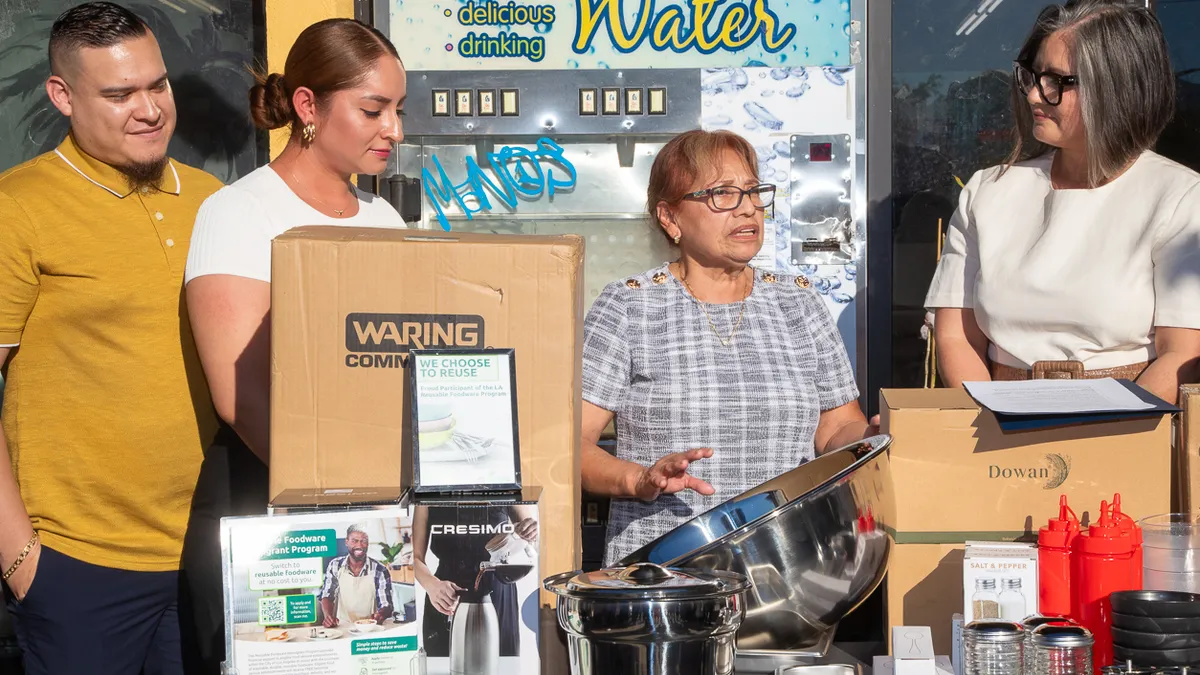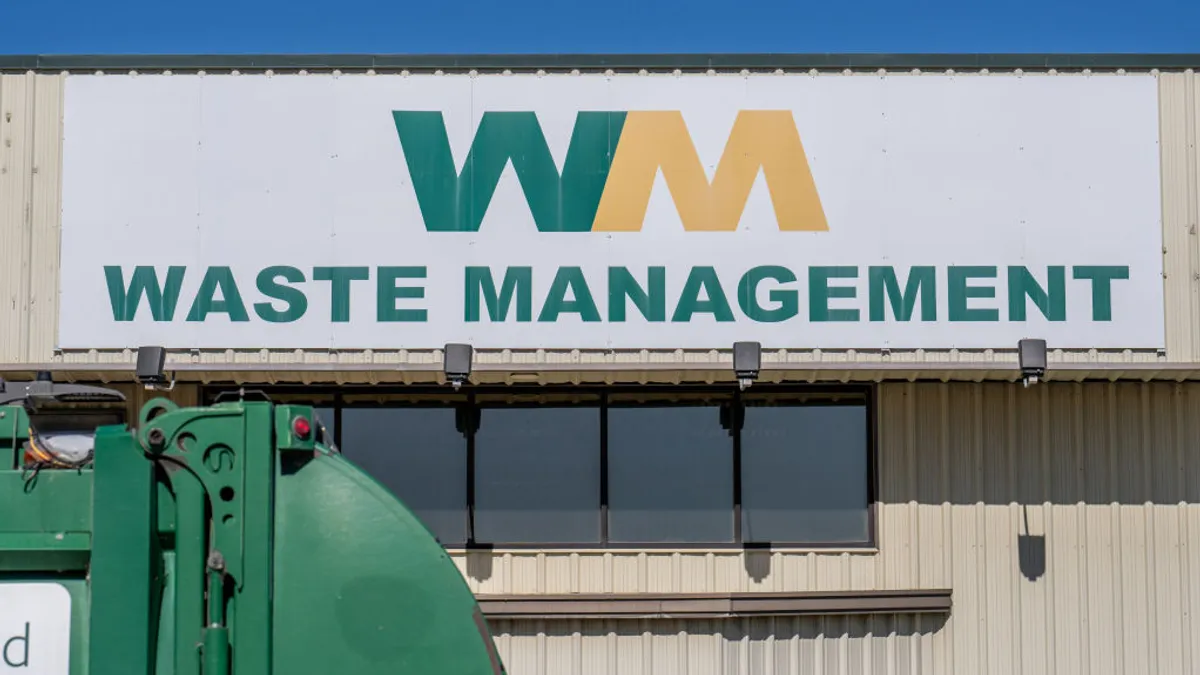To make zero waste programs truly effective, projects must center marginalized communities and put inclusivity at the forefront of the work, said speakers at the National Zero Waste Conference.
During a virtual panel discussion Thursday on equity in zero waste programs, panelists described how disadvantaged people in Los Angeles and San Francisco, as well as in the Philippines, are shaping zero waste efforts and lending their expertise.
One part of California’s broad waste diversion strategy is to reduce single-use food ware, but some restaurants in disadvantaged areas have faced challenges transitioning to reusables. They’re also facing pressure from AB 1276, a law passed in 2021, that prohibits full-service restaurants from providing single-use plastic straws or food service ware unless the customer requests it. Costs or other “limiting factors,” such as lack of information about the recent law, are major barriers for businesses, said Kelly York, sustainability and waste minimization manager at environmental services consultant APTIM. She discussed general best practices that APTIM has developed while working on a range of sustainability projects.
York did not mention specific projects during her presentation, but LA Sanitation & Environment recently announced a reusable food ware microgrant program for small businesses in “economically and environmentally challenged neighborhoods” that need financial assistance in order to switch to reusable or compostable options. LASAN and Los Angeles City Councilwoman Monica Rodriguez said project organizers worked with APTIM and local sustainability organizations to do outreach and education.
The most successful partnerships often involved visiting businesses numerous times and speaking with business owners in their preferred language, York said. APTIM also conducted surveys of business owners’ perspectives and identified small steps to transitioning away from specific items like single-use trays, she said.
Building relationships with business owners to identify priorities and barriers takes time, but it’s crucial to establish trust and connect businesses with zero waste solutions that work best for them, York said. “It helps us to better understand the gaps between current practices and a more sustainable future and connects us on a more personal level,” she said.
California is also in the midst of enacting SB 1383, which calls for reducing organic waste disposal 75% by 2025 and reducing the state’s total edible food waste 20% by 2030. Edible food recovery is a facet of that goal.
Marria Evbuoma, founder of Rotation Community Services, highlighted how grassroots and community-centered groups such as Food Not Bombs, White Pony Express and local mutual aid organizations have long been collecting and redistributing food to unhoused and marginalized people before SB 1383 was passed.
These groups not only play an important role in food waste diversion, but also in helping community members who are often left out of sustainability conversations, Evbuoma said. Such community-centered groups understand how food insecurity can intersect with other factors such as housing insecurity, race, class, gender, mental health and substance use, she said.
Numerous community groups recently came together in San Francisco’s Richmond District to help reduce trash at an encampment for people experiencing homelessness. Residents there said they didn’t have access to regular trash service and had also been discarding clothing along with their trash because they didn’t have access to laundry facilities.
The community groups hosted a cleanup day, where they conducted a waste characterization survey, organized a donation drive and provided laundry services. They also collected discarded bottles and cans for redemption and donated the proceeds to organizations who had been working with unhoused residents. The neighborhood was able to reduce waste, but also foster long-term relationships, Evbuoma said.
“We're creating networks so that not only are we just helping people, we are really looking at the root causes of these challenges and problems in our community and figuring out ways to transform them,” she said.
The global informal waste worker sector is also made up of vulnerable and marginalized groups, and their work is a critical part of making zero waste efforts a success, said Zen Borlongan, national coordinator for the Mother Earth Foundation. The organization helps connect informal waste workers with job training and skills development, as well as healthcare and educational support.
Borlongan works in the Philippines, where an estimated 100,000 people work in informal waste jobs but earn less than minimum wage and often don’t have access to stable housing, healthcare or government benefits, she said.
Communities around the world can learn from the expertise that informal waste workers provide, she said. Part of the Mother Earth Foundation’s work is to help waste workers advocate for themselves at municipal and governmental meetings about waste management and safety issues. Borlongan also advocates for international laws and policies that could protect waste workers, provide access to better health and safety benefits, and bring dignity and respect to their jobs.
“We are grateful to our waste workers for joining hands with us. Surely and steadily, they are recognizing their impact on the future we are all working for,” she said.
Editor’s note: This story has been updated with more specific attribution for the details of LASAN’s reusable food ware program.



















